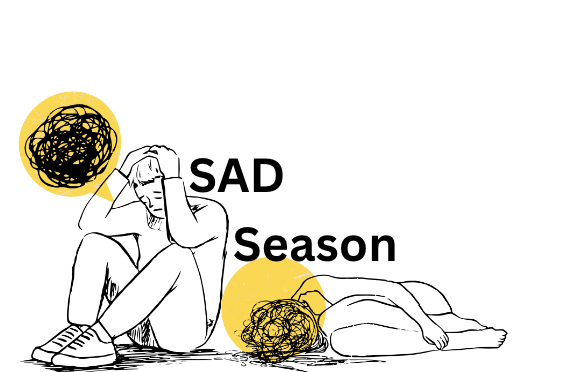Not Getting the Joke: Is Shaming Part of Teenage Culture?

Your ignorance is more scandalous than my promiscuity. (Melissa Blasquez / Lincoln Lion Tales)
If you’re a girl, you probably experienced hurtful name calling by a certain age, maybe middle school, or even a little before that. Names like “slut” or “whore,” and called this by both boys and girls. What were the reasons for this? Sometimes girls who started wearing makeup before everyone else were shamed for it, or they started dressing in less clothing than they did when they were younger, or maybe they just got their first boyfriend.
Back in elementary school, when I was about 10 years old, I remember me and my friend being really jealous of this certain group of girls. We called them names because of how they dressed, between ourselves though, and actually believed the hurtful things we said. But, how can a 10 year old be a “slut?” How is this even a justifiable statement? It isn’t. But that brings up the question, what is a “slut?”
According to google, it means “a woman who has many casual sexual partners.” And the “w” word leans more to the meaning of “prostitute.” But people tend to throw these words around like it’s nothing. The slut-shaming topic has become more and more popular in today’s society. Or the question, “Why are men praised for how much sex they have, but women are shamed?” And why are women called these kind of names for how they dress?
From an early age, girls are taught from the media that, to get attention, you have to be attractive. Not just girls, but boys too. But my perspective is, most of the pressure is put upon girls. Models are thin, and beautiful, and perfect, and in most ads are portrayed very sexually. They are sex symbols. Now, the question is, is this a bad thing?
The women that are modeling and being portrayed as these, “sexual beings,” have a choice whether or not to be depicted like this. It is their choice, and in most cases, they are not claiming to be a role model for anyone. It is their lives, and that is their career. Of course there is the contradictory topic, that women are “exploited” in the media because of men. It leads back to the times, when all women really did was present themselves in a way just to appeal to men. I don’t believe this is true, and this theory is sort of contradicting itself. To say that women are dressing or wearing their makeup a certain way, to get the attention of men, and that they should respect their bodies, is misogynistic in itself.
Another controversy, barbie dolls/bratz. The topic says that dolls wear too much makeup and too little clothing, and that they influence young girls in a negative way. From my own experience as a kid, I do remember thinking that my dolls that had more makeup on looked more “promiscuous” than the rest. But, obviously this kind of thought isn’t just an innate opinion. It was taught, through television and my parent’s thinking aloud. This to me proves that, this kind of stereotype about women is just taught and repeated over and over, making it a universal truth to some. These dolls didn’t teach me to dress like them, but they just prove that we start forming judgement very early, and to me, words that bash a woman for sexual activities or judge her as being promiscuous because of clothing should never even be taught in the first place.
Our appearances all differ, from gender, race, body types, etc., but a lot of people see their appearance as a form of expression. Makeup is art to some, clothing another. The point, usually, is to feel comfortable or confident, or appealing. It’s natural to want to be accepted by the others around you, and it’s also natural to want to look different than the rest, or accentuate certain things. But everyone has an opinion, and some won’t think it’s appropriate to show “too much” skin, or just dressing the way they do, or judge their amount of makeup. Some judge people out of jealousy, or because they have the preconceived notion that dressing like this is wrong, or being with too many people is wrong.
We all form different opinions, and sometimes they become set in stone. Here’s the main question: Do we have the right to judge people for their amount of sexual partners, or how they dress? Yes of course we have the right, but, is it right? Is it right to bash any gender for their personal actions? I asked a few students here at Lincoln their opinions.
1) Do you think it’s right to judge people for their sex life? Amount of partners?
Marco Vides: No, because it’s not your life.
Gabe Cortez: Yes, because my opinion doesn’t affect that person.
2) Is judging someone for how they dress right to do?
Marco Vides: No everyone has the right to dress how they want.
Gabe Cortez: Yes, my views shouldn’t affect that person.
3) What do you define as a “slut?”
Marco Vides: A person with multiple partners. But they shouldn’t be considered a “slut.”
Gabe Cortez: Shows a lot of skin and “messes around” with a lot of people, but that’s with men too.
4) Have you ever judged someone for being a “slut?”
Marco Vides: No I’ve never cared.
Gabe Cortez: Yeah. I just kind of “cringe” when I hear a girl has a lot of “partners.”
5) Do you call people these kind of names/labels, or outwardly judge them to their face or to your friends/family?
Marco Vides: Only friends [males], as a joke.
Gabe Cortez: No, but I’ve agreed with a friend before that has said something about a guy or girl.
Other Opinions
Joseph Comstock: I think “slut” has a negative connotation, that I don’t necessarily think that what is usually defined as a “slut” is a bad thing. Like I think it’s okay for a girl to be with whoever they want. Guys like to be with whoever they want. As long as it’s not hurting anyone [it’s okay]. It shouldn’t devalue anyone.
LeiLina Castillo: “I just feel that when someone calls a girl a slut just because of her clothes, and things like that, it’s not the same as if a guy is walking around with his shirt off. If a girl walks around in her bra, people act like it’s so bad, and they think, ‘Oh my god, she’s such a slut’. But you don’t know if she’s had sex or not. People make assumptions based on the way a girl dresses, she could still be a virgin and you’re just talking her down because of her choice in clothes, and it’s not fair.
Do you don’t think it’s right to judge people for their sex life or amount of partners?
“No, I don’t think you should. Because honestly for me, I wouldn’t want people talking about what I’ve done or what I do.
Have you ever judged someone, maybe in the past, for being a “slut”?
“No, I’ve never really done that. When people would talk about other girls, I would just be like, ‘Why does it even matter? You know, like I never really got into that position, just because me personally, I know how like, even it’s not true or is true, how it can hurt. So I was just never one to ever talk about it.”
Slut shaming is not just judging people or talking badly about girls, because sometimes it turns into bullying. The recent Instagram incident in the San Jose School District is a prime example of slut shaming and cyberbullying. A male student made an Instagram bashing page, inviting others to send him pictures of girls they considered “bops,” a derogatory term like “slut.” Not only did teens send selfies of certain girls, but inappropriate pictures as well.
Teens need to understand it is illegal to share their own and other people’s photos. But these things happen sometimes, and if someone sends you a picture like this, do not show others. If they’re underage, it’s illegal just to have them in your possession. If you can’t see the immorality of sharing these private photos, think about sitting behind bars with a felony dangling over your head for the rest of your life. This kind of attitude toward others shows the lack of respect some people have. It is proof that not everyone is mature yet , and these people obviously do not have a mature mindset concerning sex, and therefore their opinions will tend to be ignorant and close minded when it comes to judging people on their personal lives.
Of course we all have the right to think what we want. No one can force you to change your opinion. But the real problem here is many don’t keep these kind of opinions to themselves. They tell friends, who tell more friends, and create a chain reaction, and suddenly everyone thinks a certain girl/boy is a bad person because of what another girl/boy said about them. You have the right to an opinion, but not the right to ruin someone’s life, and that includes spreading photos around or even just gossip.

Melissa Blasquez is a senior at Abraham Lincoln High School. She was born in the Bay Area, moving several times as a child. Her hobbies include reading,...











